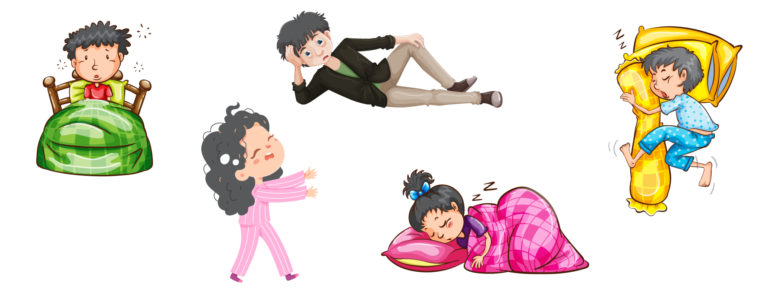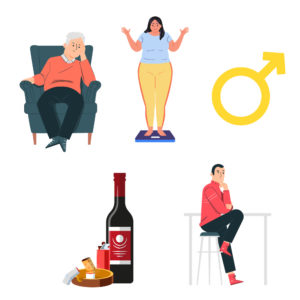Sleep: How to do it right
Consultant Respiratory Physician (MBBS, MD Medicine, MRCP UK, ESRS/ Expert Somnologist)
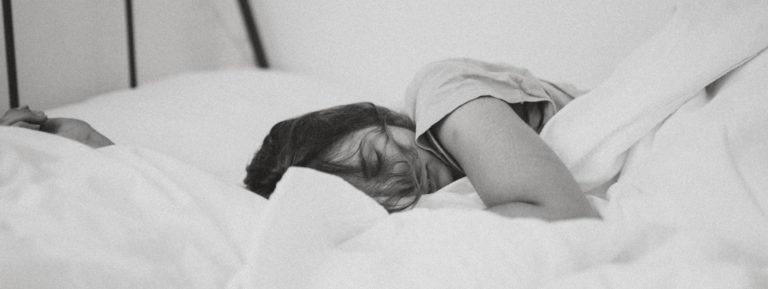
We wake up in the morning, go through the daily routine and finally, sleep at night. This happens day in and day out throughout our lives. We spend about one-third of our lives sleeping. If you consider a person who has lived up to a ripe age of 90, he or she would have spent about 30 years sleeping.
Why has nature allocated such a considerable amount of time to spend in sleep during the evolutionary process? Surely there must be some great importance.
Keep reading to find out what sleep is, what happens in our body during the long hours we spend in sleep, how many hours and why we should sleep, and how to sleep right and improve the quality of our sleep. Click here to read my other article on sleep disorders regarding how to investigate them, what tests to do and what treatment is available for them.
So, let’s start with the basics - What is sleep ?
Sleep is not one static state. When we sleep, we go through 5-6 sleep cycles every night. Each sleep cycle has several stages as the brain’s EEG or electric current waves change.
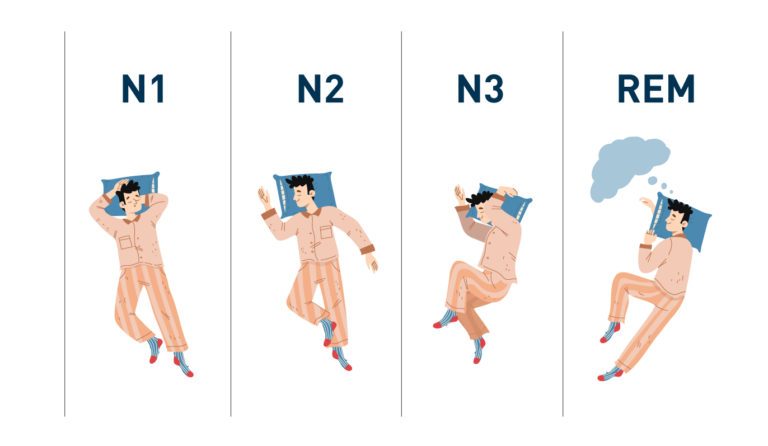
We go to bed and close our eyes. Initially, we drift in and out of sleep during light sleep, and this is stage N1 in sleep. Gradually we enter deeper sleep stages called N2 and N3. These three stages are called NREM sleep, which is Non-Rapid Eye Movement sleep. As we enter deeper sleep stages, the brain EEG waves progressively slow down. Furthermore, the time we spend in N3 is more significant during the night’s first half and reduces in duration as we get closer to the wake-up time.
After the stages of wake, N1, N2 and N3, we enter REM sleep, which is called dreaming sleep. In this stage, our brain waves, again, look very active. However, our body becomes atonic or almost paralysed. In this stage of sleep, we start dreaming, and we remember our dreams only if we are awakened from this stage of sleep.
What is a body clock?
The amount of dreaming sleep increases as the night goes on. As we spend less time in deep sleep towards the early hours of the morning, we also tend to have episodes of waking up in the morning.
Our body clocks run this pattern of waking up in the morning and sleeping at night, called the circadian rhythm. The central body clock is situated in the brain in the small but essential organ known as the hypothalamus. There is an area with packed neurons called the suprachiasmatic nucleus, which plays a vital role in setting the body clock so that we wake up in the morning and sleep at night. The sun also plays a massive role in maintaining the sleep-wake cycles.
Many complex neuronal signalling and hormonal interplay go on in the body, especially in the brain, so this cycle happens smoothly. As the sun goes down in the evening and dusk sets in, there is another small organ in the back of the brain called the pineal gland, which secretes a hormone called melatonin. Melatonin is essential in making us feel sleepy. People who take over-the-counter melatonin tablets for sleeping without proper medical advice may have worse sleep patterns than they bargained for due to improper timing or wrong dose.
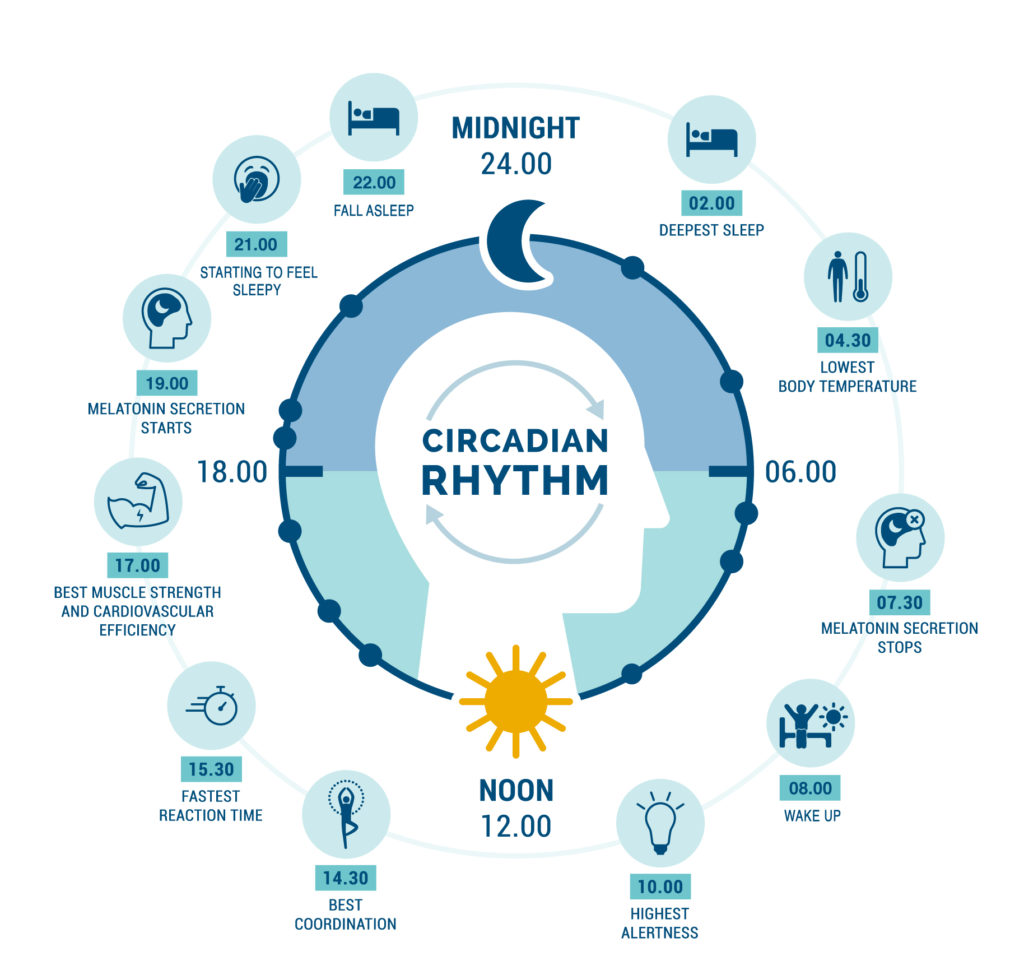
How much sleep do we need?

The amount of sleep we get varies with age, and most young adults report 7-8 hours of sleep. Restricting sleep to 4-6 hours per night negatively impacts our mental and physical skills and performance.
A baby will sleep about 12-16 hours most of the day, and as time goes on, the amount of sleep lessens gradually. A 10–12-year-old child will need about 9 to 10 hours of sleep, and a teen would require 8-10 hours.
A healthy young adult will need about 7-9 hours of sleep. However, this is a population average. The amount of sleep each person needs is highly individualistic.
It is essential you find out how many hours of sleep your body needs. How can you do this? On a holiday, go to sleep when you feel sleepy and let yourself sleep until you wake up in the morning without an alarm clock. Continue this for several days and calculate how many hours of sleep you need. It may be within the population average of 7-9 hours.
Occasionally, it may also be less than that. Certain people sleep less or more, which may not impact their daytime functioning. If you find out your natural sleep requirement, you must ensure you get this amount of sleep every night of the week.
As ageing sets in, the sleep requirement reduces. An elderly person’s sleep can vary from 5-6 hours of sleep to 7-9 hours. The amount of time spent in deep sleep reduces with age as well. Also, the amount of fragmented sleep tends to increase, especially in the early hours of the morning.
Is it normal to wake up several times during sleep?
Yes! It is normal to wake up several times during any of these stages. We may keep tossing and turning around and go back to sleep. Sometimes, we may remember waking up at night, while other times, we may have no recollection of this. So, if someone thinks that once you fall asleep in the night, you must sleep without any wake periods, that is a myth.
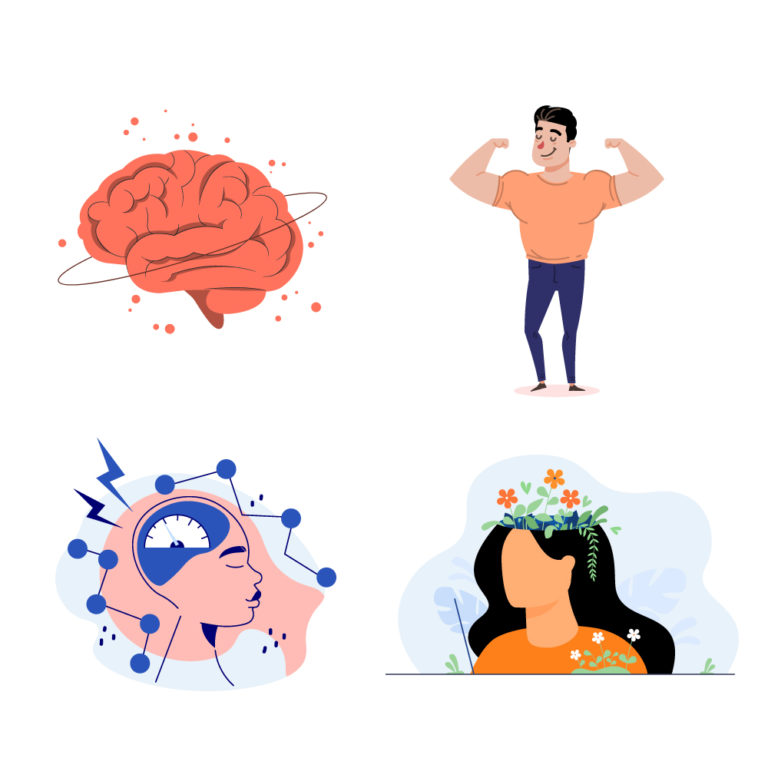
Why do we sleep? Why is it so important?
‘A good laugh and a long sleep are the best cures in a doctor’s book’. Many studies have been done to understand the importance of sleep.
- Sleep is essential to rest the brain.
Studies have shown that the brain clears unwanted material called neurotoxins from the brain during the sleeping process.
- Improved physical health
There is also a clear link between good sleep and improved physical health.
- Helps maintain a balanced mind
Sleep is vital for maintaining a balanced mind. Otherwise, you become angry, irritable, and depressed.
- Memory consolidation
There are many harmful consequences of inadequate sleep. Increased risk of cancers, infections, increased forgetfulness, poor decision-making power, increased body pains, increased risk of dying early and increased risk of road traffic accidents are some of the negative impacts of poor sleep.
Tips for better sleep

To achieve the best of sleep amidst our busy schedules, we must know how to sleep right. Following are guiding steps to observe, fall asleep quickly and sleep well.
- Maintain a regular sleep routine – Depending on your work and family schedule, decide what your regular wake-up and bedtime are. Maintain this routine throughout the week. Strictly abiding by a sleep routine can reduce sleep deprivation.
- Avoid stimulants such as tea, coffee, cola and chocolates about five hours before bedtime
- Stop smoking
- Avoid exercise close to bedtime – It will have a stimulating effect on the brain even though you may think that it causes the body to be tired.
- The last mealtime before bedtime should be 2-3 hours before
- Utilise between 30 minutes to 1 hour to wind down, take a wash, change into pyjamas, and spend time on self-grooming in preparation for sleep.
- It would be best if you stopped using devices such as phones, laptops, and iPad at least an hour before bedtime.
- The bedroom must be a quiet, dark environment.
- It is essential to avoid napping in the daytime. Instead, opt for short, power naps of less than an hour during the daytime.
- Engage in exercise
- Maintain a healthy diet
If you regularly follow these simple but essential steps, good quality sleep can be ensured. However, if you still have difficulty sleeping, have doubts about your sleep hygiene, or want to find out whether you have a sleep disorder, it is best to consult your respiratory consultant. You can consult SLMC registered sleep consultants or respiratory consultants via oDoc, who can assist you towards a healthier sleep routine.

Dr Ruwanthi Jayasekara
SLMC 25147
Chest Physician


